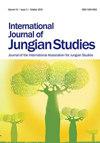Two Jungs: Two Sciences?
Q4 Psychology
引用次数: 0
Abstract
Two tendencies co-exist within the field of analytical psychology. The first is to locate Jung’s psychology within the established bounds of official science (by for example insisting on its implicit consistency with orthodox scientific findings). The second is to make claims that Jung’s psychology is extra- (or super-) scientific. It seems to me however that neither approach can do justice to the difficulty of the problem Jung has set us. In order to develop a third approach I place Jung’s problematic engagement with science into a creative encounter with the philosophical ideas of Deleuze & Guattari. The French philosophers distinguish two contrasting ways of doing science: “Royal” or “state” science privileges the fixed, stable and constant. “Nomad” or “minor” science emphasizes the malleable, fluid, and metamorphic nature of being. These are not alternatives but “ontologically, a single field of interaction” (Deleuze & Guattari, A Thousand Plateaus, p. 367). When it comes to Jung’s writings on science, the irredeemable ambiguity of his psychology shows up in what appear to be two contradictory approaches. One highlights the intrinsically scientific nature of his project and insists upon his empiricism. The other takes the form of a profound and relentless critique of the materialistic, reductive and rationalistic assumptions Jung finds behind the scientific approach. My suggestion here is that the dynamic tension between these two opposing visions of science that forms the crucial condition for the on-going individuation of his psychology.两个男孩:两门科学?
在分析心理学领域,两种倾向并存。首先是将荣格的心理学定位在官方科学的既定范围内(例如,坚持其与正统科学发现的隐含一致性)。第二个是声称荣格的心理学是超科学的。然而,在我看来,这两种方法都不能公正地解决荣格给我们带来的问题的困难。为了发展第三种方法,我将荣格与科学的有问题的接触置于与德勒兹和瓜塔里的哲学思想的创造性接触中。法国哲学家区分了两种截然不同的科学方式:“皇家”或“国家”科学赋予固定的、稳定的和恒定的特权。“游牧”或“次要”科学强调存在的可塑性、流动性和变质性。这些不是替代品,而是“本体论,一个单一的互动领域”(Deleuze&Guattari,a Thousand Plateaus,p.367)。当谈到荣格关于科学的著作时,他的心理学的不可救药的模糊性表现在两种看似矛盾的方法中。其中一个突出了他的项目本质上的科学性,并坚持他的经验主义。另一种形式是对荣格在科学方法背后发现的唯物主义、还原主义和理性主义假设进行深刻而无情的批判。我在这里的建议是,这两种对立的科学观之间的动态张力构成了他心理学持续个性化的关键条件。
本文章由计算机程序翻译,如有差异,请以英文原文为准。
求助全文
约1分钟内获得全文
求助全文
来源期刊

International Journal of Jungian Studies
Psychology-Applied Psychology
CiteScore
1.10
自引率
0.00%
发文量
10
 求助内容:
求助内容: 应助结果提醒方式:
应助结果提醒方式:


